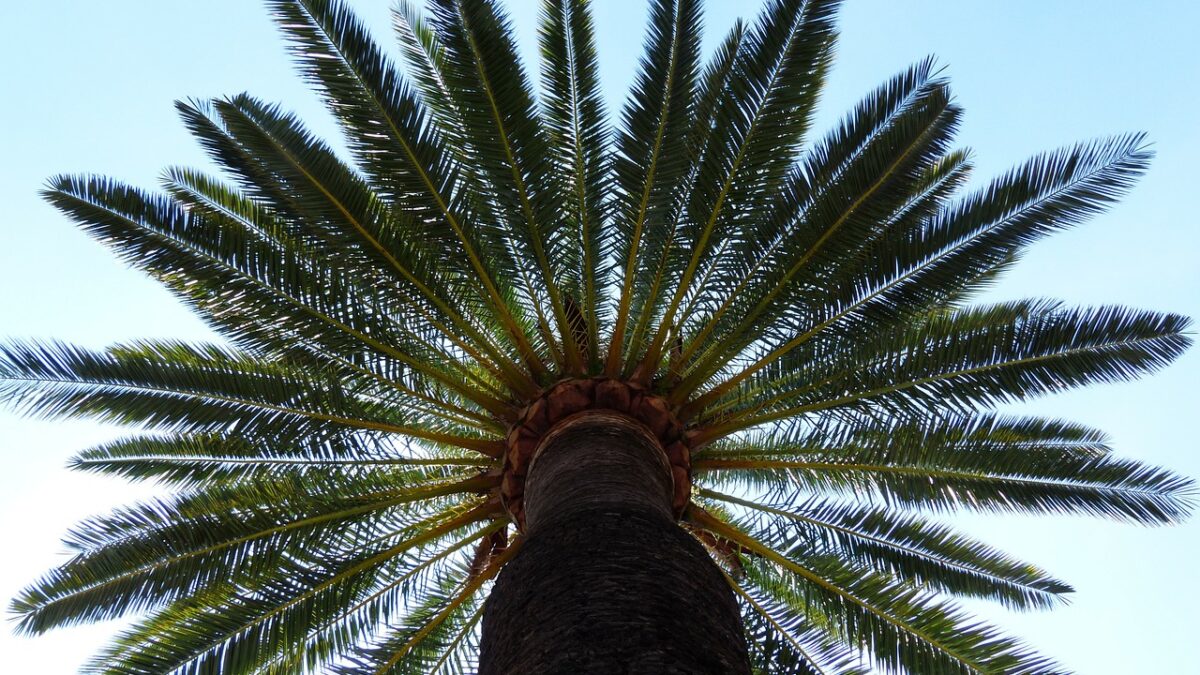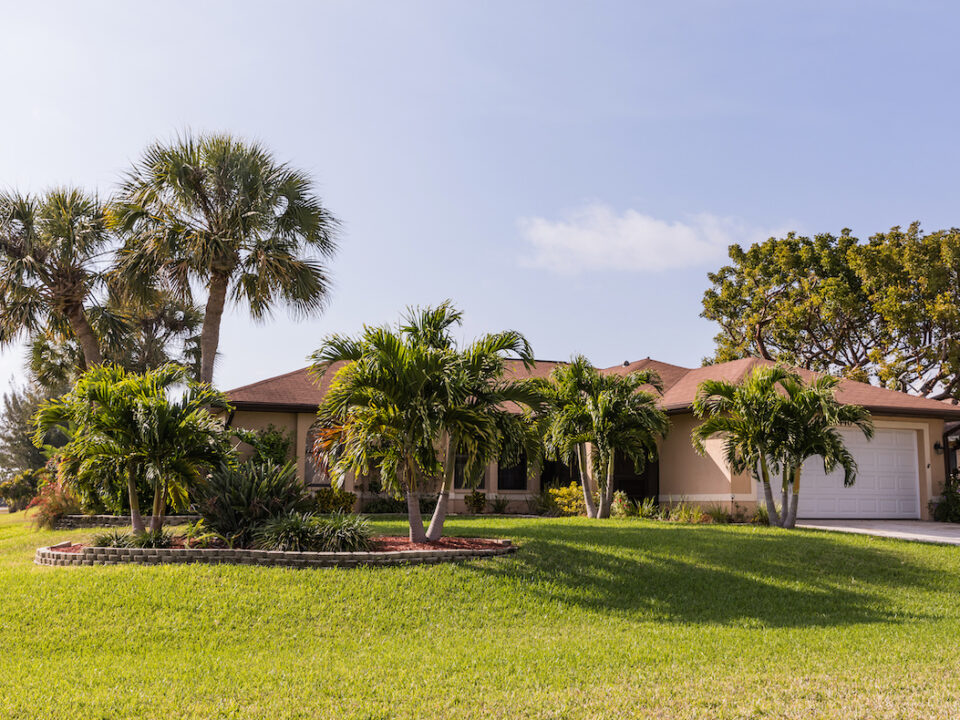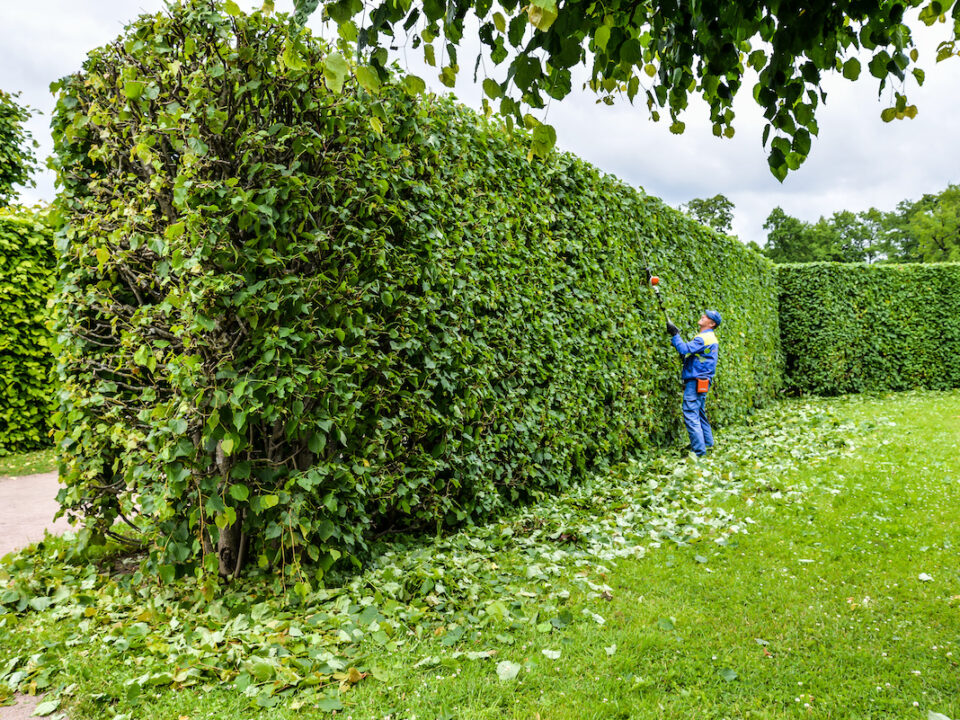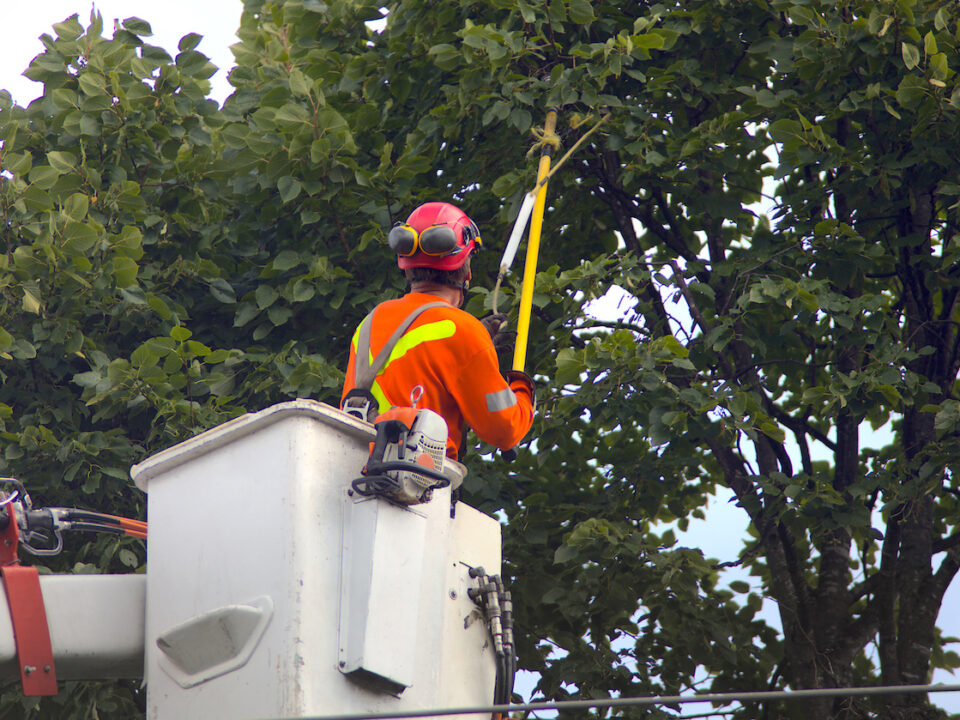Gardening is a year round joy for many Floridians. Unfortunately, the joy of gardening can turn into tragedy if a homeowner has a poisonous palm tree inside or outside the home. In the Sunshine State, there are many palm trees that are toxic to humans and to pets. Certain species of palm trees have toxin-producing leaves, seeds, or cones that can cause serious medical problems and even death.
In recognition of National Poison Prevention Awareness Week, Warner Tree Service has gathered the must-know info to help you prepare for a potential palm tree poisoning emergency that could have a fatal outcome. We want to help you to
- Protect your family by learning about Florida’s poisonous palm trees.
- Prevent a tragedy by being prepared to respond to a plant poison emergency.
Florida Palm Trees that are Poisonous
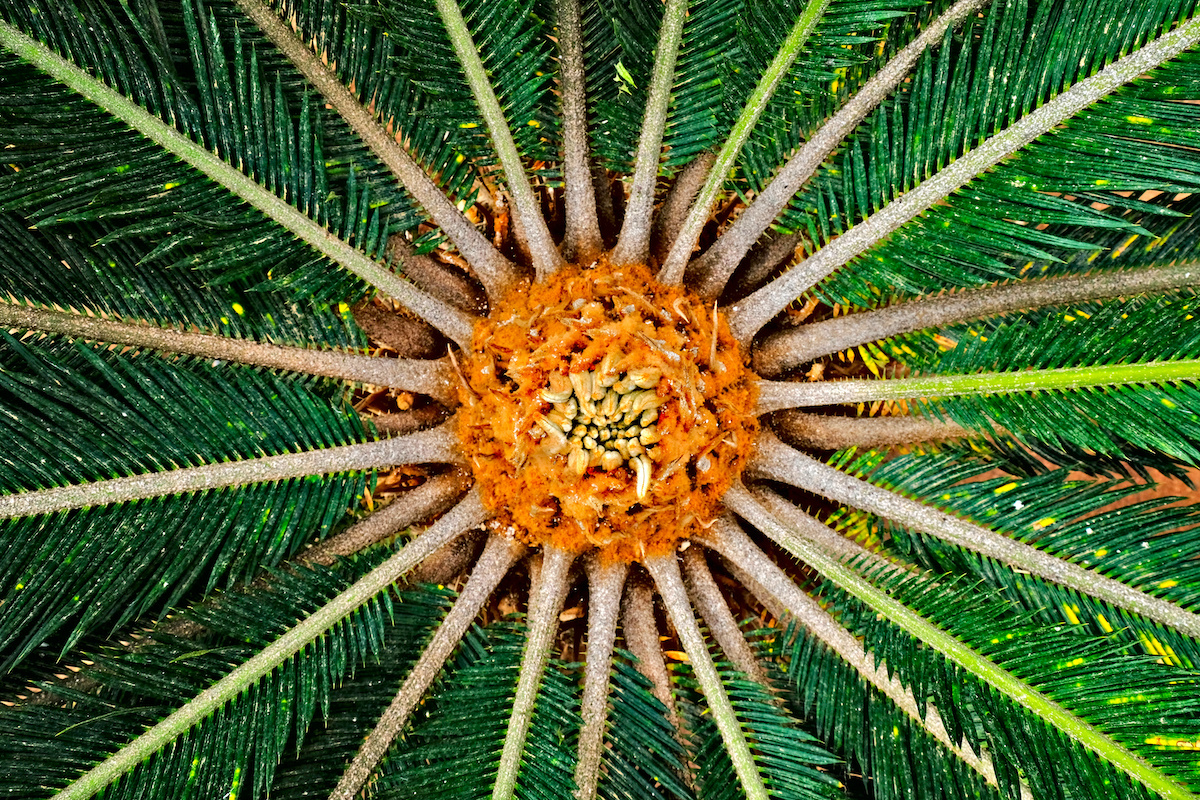
Plants and trees are one of the most overlooked sources of poisoning tragedies. Curious kids and pets may get themselves into tragic situations around a house that has toxic palm tree or palm plant. Whether inside or outside the home, be aware and be prepared to protect your family.
Before you select a palm tree or palm plant for your property, speak to acertified arborist with knowledge of palm toxins. While the following list can be used as a starting point to identify poisonous palm trees, speaking with an expert can help you to make an informed decision about planting a particular type of palm tree or plant (no matter how strikingly beautiful it is).
We understand that some varieties of palm trees are just the right size or have other features that may be very appealing to your needs. If you really can’t resist having a toxic palm tree in your landscape, a certified arborist will help you select at the safest possible location for that tree — meaning, well out of reach of curious children and family pets.
Cardboard Palm
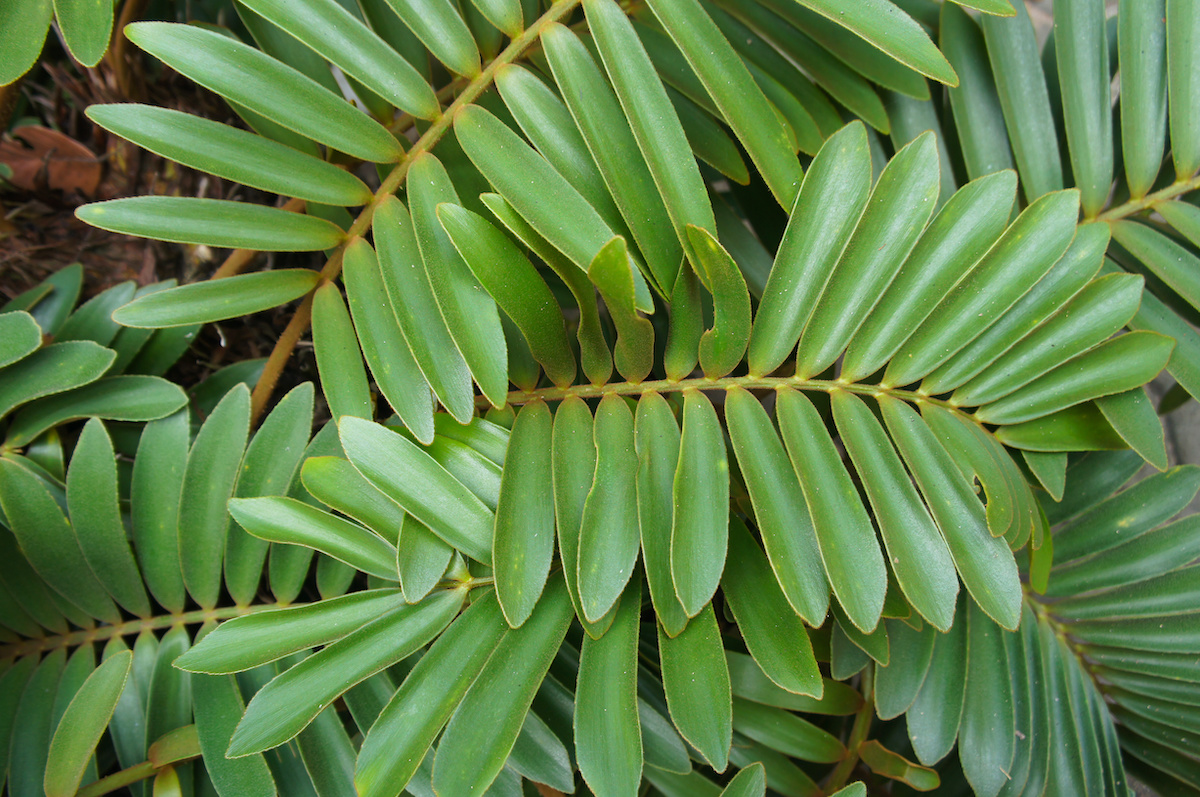
Cardboard Palm leaves grow in a rosette pattern, each reaching 3 to 4 feet in length. It’s the bright red seeds that grow inside the cones that are poisonous. The Cardboard Palm is toxic to animals, causing bruising, liver failure, vomiting and potential death. The tree is a common addition to landscaping because it is a drought-tolerant palm, easy to grow, and may be used indoors.It is common in most of Florida.
Formosa Palm
Other Names: Taiwan Sugar Palm, dwarf sugar palm and Taiwan Arenga Palm
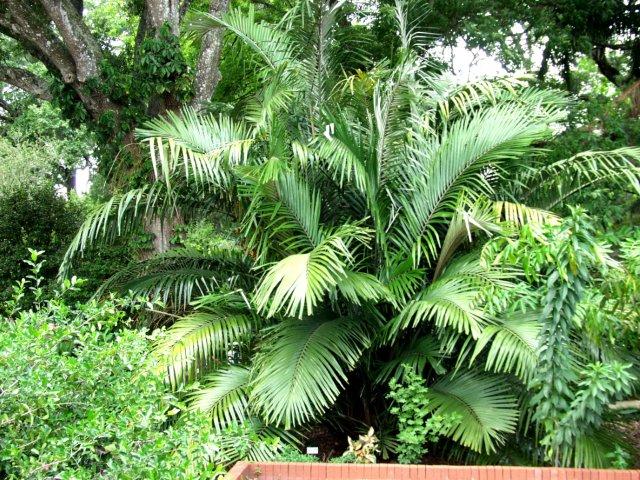
The Formosa Palm is a big tree with toxic fruit that can cause a severe allergic skin reaction.The tree grows to 10 feet tall with a spread of 16 feet and produces dark olive, fishtail-shaped leaves that may grow as much as 8 feet long. The red, orange or green flowers grow on stalks. This shade-loving plant plant grows in all but the most northern parts of Florida.
Fishtail Palm
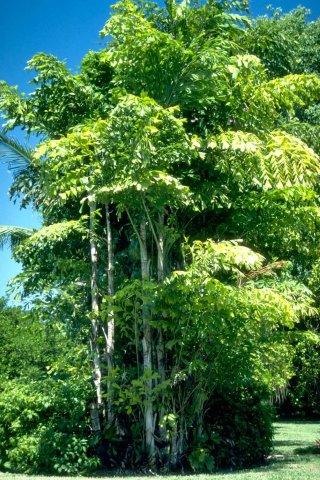 The Fishtail Palm produces oxalic acid, which is toxic when ingested and causes severe chemical burns when it comes in contact with the skin. Fishtail Palm trees grow up to 25 feet tall and 12 feet wide. The stems are topped with light green leaves that may reach to 9 feet in length and bare red fruits. The Fishtail Palm is hardy in southern Florida.
The Fishtail Palm produces oxalic acid, which is toxic when ingested and causes severe chemical burns when it comes in contact with the skin. Fishtail Palm trees grow up to 25 feet tall and 12 feet wide. The stems are topped with light green leaves that may reach to 9 feet in length and bare red fruits. The Fishtail Palm is hardy in southern Florida.
Queen Sago
Other Names: False Sago and Fern Palm.
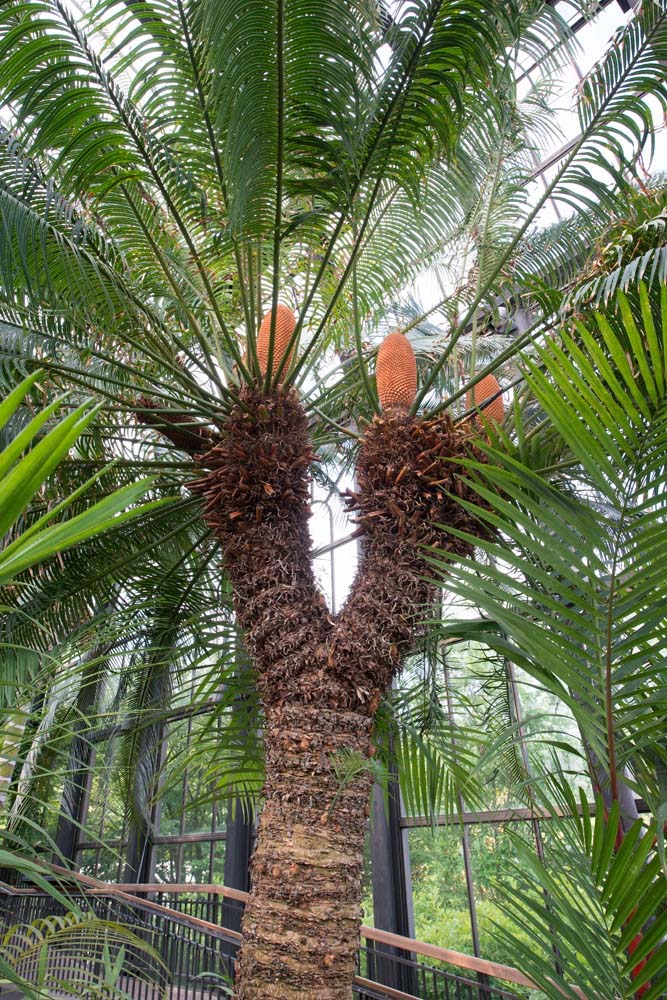
The The Queen Sago contains neurotoxins that can paralyze or kill if ingested. The plant grows up to 20 feet tall and produces feather-like leaves that grow up to 8 feet long. Both the male and female tree produce cones in the fall, and the female cones produce large orange seeds. Queen Sago is only hardy in southern Florida and the Florida Keys.
Sago Palm
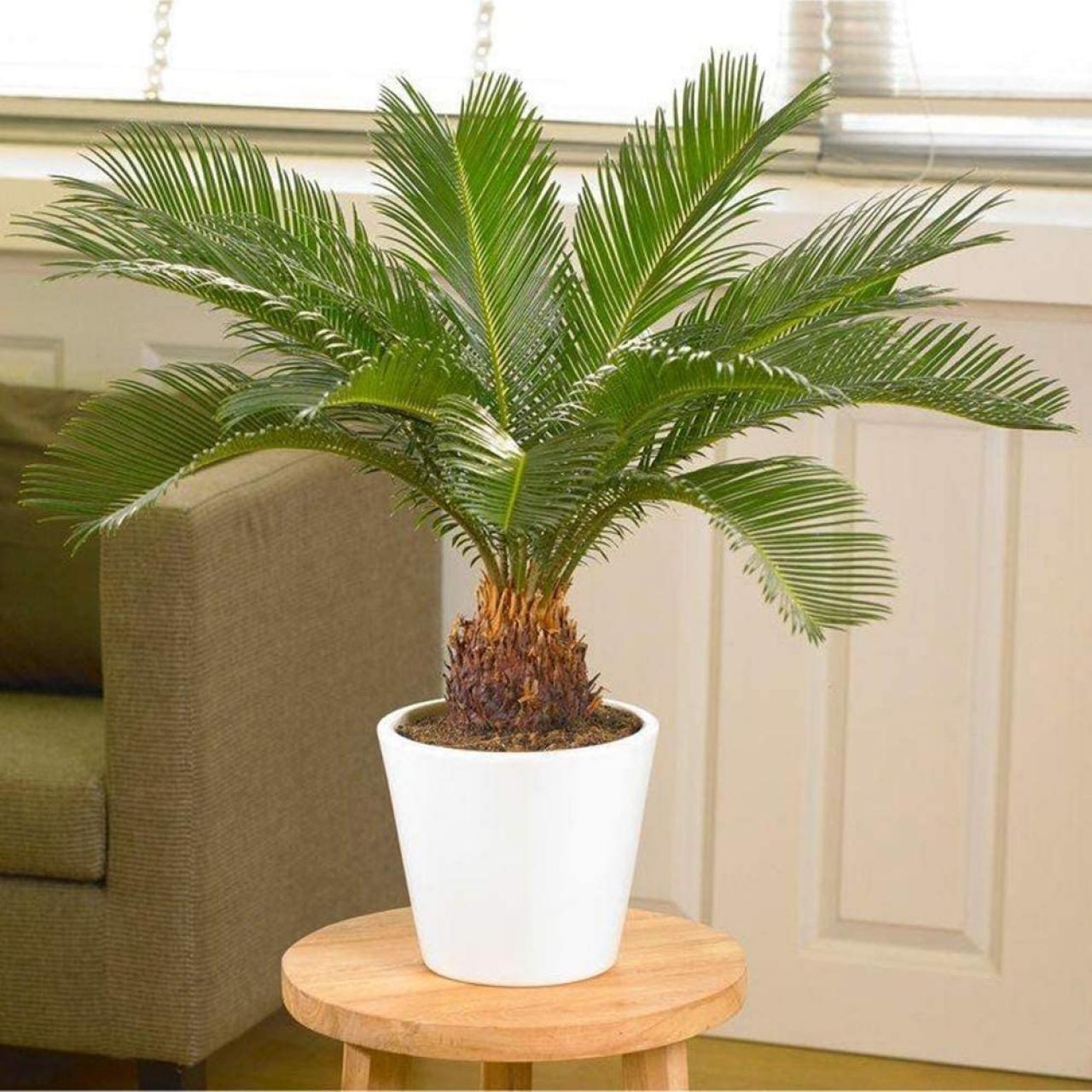 The Sago Palm is a favorite small palm for the home and garden. Technically, it isn’t even a palm tree; it’s a cycad, one of the most ancient of plants that has been around since prehistoric times. All parts of the Sago Palm contain cycasin, a toxin. Cycasin is most concentrated in the seeds and leaves. In the body, cycasin works quickly, causing symptoms as fast as 15 minutes post-ingestion (In some cases, signs may not appear for several hours). Ingesting any part of the Sago can be deadly for a small child or a cat or dog. Symptoms of poisoning by Sago Palm include vomiting, bloody stool, damage to the stomach lining, liver failure and may cause death.
The Sago Palm is a favorite small palm for the home and garden. Technically, it isn’t even a palm tree; it’s a cycad, one of the most ancient of plants that has been around since prehistoric times. All parts of the Sago Palm contain cycasin, a toxin. Cycasin is most concentrated in the seeds and leaves. In the body, cycasin works quickly, causing symptoms as fast as 15 minutes post-ingestion (In some cases, signs may not appear for several hours). Ingesting any part of the Sago can be deadly for a small child or a cat or dog. Symptoms of poisoning by Sago Palm include vomiting, bloody stool, damage to the stomach lining, liver failure and may cause death.
Additionally, there are dozens of other plants not listed here that also are poison hazards. Some, like those listed here can be deadly. Others may just be terribly irritating. To learn more visit theBotanical Dermatology Database.
Check out the resources we’ve listed at the end of this post for more information about Florida’s poisonous palms and plants.
Tips for Protecting Family & Pets from Palm Tree Toxins
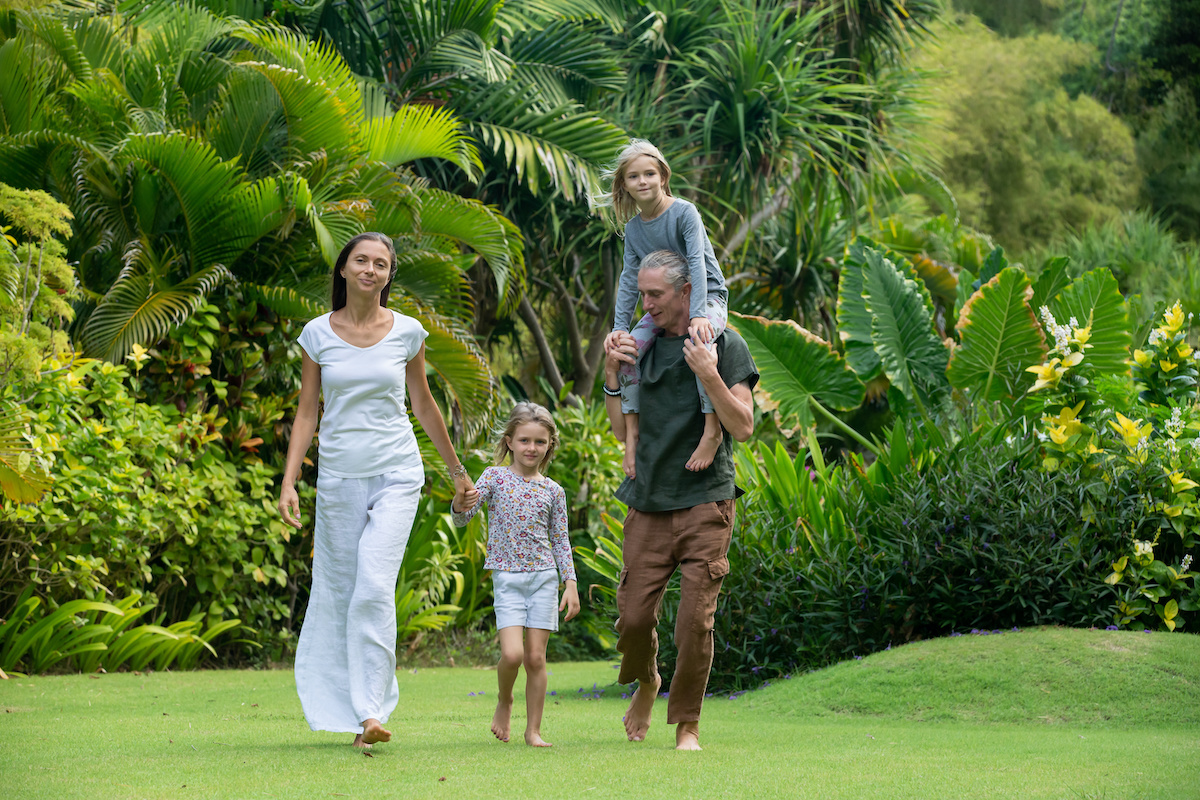
If you already have a poisonous palm on your property and you are not able to remove that tree, you’ll need to do the following tasks regularly. If you can’t do these tasks yourself, please inquire with a professional tree service company about options to keep your home and garden free from palm tree poison.
Tip: Wear gardening gloves, long sleeve shirt, and long pants when clearing yard debris.
- Do not plant a toxic palm tree in any area where children and pets can gain access.
- Pick up cones that have fallen onto the ground and dispose of in a garden debris bag.
- Rake-up and dispose of leaves, stems, and fruit that has fallen to grind.
- Seal all garden debris bags tightly and place in a receptacle that children, pets, and wildlife cannot get into.
Responding to a Poisoning Emergency
ALWAYS call poison control before you administer emergency first aid for a poisoning.
NEVER give your pet or family member an over-the-counter medication without speaking to a medical professional.
NEVER give holistic or home remedies for poisoning. These actions could cause a poison to act faster, making symptoms more severe and reducing the precious time you need to get proper treatment.
Keep the following information in your kitchen, garage, and bath so it is easy to access for immediate use:
- For Poisoning Emergencies Call 1-800-222-1222 V/TTY
- Poison Control/ Emergency Center in Tampa Bay, FL
- Florida Poison Control Website
- Florida Poison Information Center – Tampa
Tampa General Hospital
PO Box 1289
Tampa, FL 33601-1289
Be Prepared for a Pet Poisoning Emergency
 If you suspect your pet has ingested a poison of any kind, call your local emergency veterinarian right away. Always keep that phone number along with the following poison emergency contacts, posted on your fridge and in your emergency first aid kit:
If you suspect your pet has ingested a poison of any kind, call your local emergency veterinarian right away. Always keep that phone number along with the following poison emergency contacts, posted on your fridge and in your emergency first aid kit:
- Call the Pet Poison Helpline: 1-855-764-7661
- 24-hour ASPCA Animal Poison Control Center 888-426-4435
- Your Local Emergency Veterinarian phone number
- Your Primary Care Veterinarian phone number
- Keep the following check sheets in a folder with your gardening supplies. Consider laminating these sheets to protect from humidity:
- Create a poisoning emergency kit and keep it in an easily accessible location. If you have a large home, keep one in the garage or on the lanai and one in the medicine cabinet inside the home. As a Floridian, poisoning response items should always be a part of your natural disaster/ hurricane emergency kits. Use these resources to build your emergency kit:
Merck Manual First Aid and Emergency Kit
Your Trusted Palm Harbor Arborist and Tree Service Company
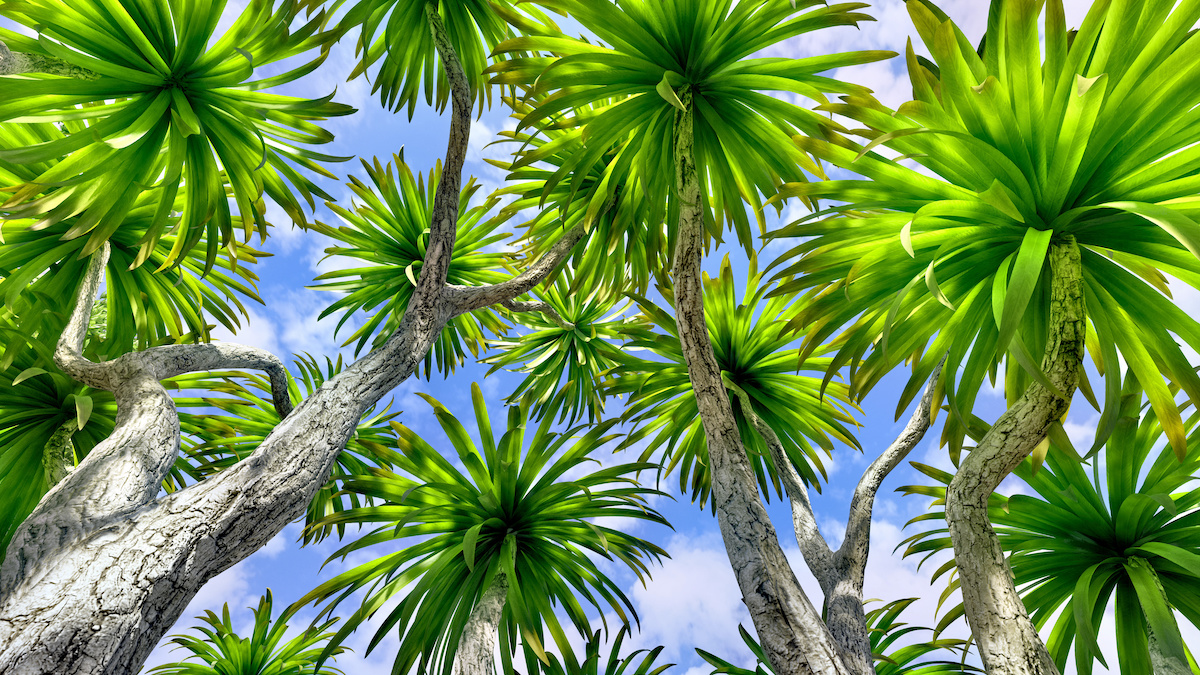 Warner Tree Service is one of the few family-owned tree companies that is operated by a certified arborist, fully licensed and insured to provide both residential and commercial tree and landscape services. Owner, Rick Warren akes an educational approach to identifying solutions for all his clients tree care needs.
Warner Tree Service is one of the few family-owned tree companies that is operated by a certified arborist, fully licensed and insured to provide both residential and commercial tree and landscape services. Owner, Rick Warren akes an educational approach to identifying solutions for all his clients tree care needs.
For safe, affordable, experienced and reliable tree care service in Pinellas County, Pasco County, and Hillsborough County, Florida, contact Warner Tree Service at 727-946-7098 or by email at warnertreeservice@gmail.com
Resources
Gardener Guides to Toxic Palm Trees in Florida
Poison Prevention Videos from Dog Time Magazine
Symptoms of Canine Poisoning Canine Journal
What to do if You think Your Cat’s Been Poisoned Daily Paws
Poisonous Plants and Plant Alternatives ASPCA
How to Poison Proof Your Yard and Garden for Your Pet

